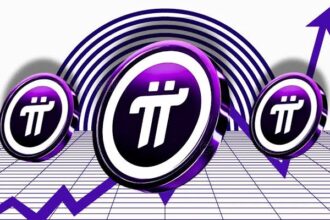Terms like “coin” and “token” are often thrown around, but do we really understand the distinction? Let’s dive into the basics and unravel the truth behind these two fundamental concepts.
What Is a Coin?
Coins are the bedrock of blockchain ecosystems. They operate independently, exclusive to their native blockchain, and cannot be utilized on other chains in their raw form. The primary use cases for coins include serving as a medium of exchange, a store of value, and a unit of account. Familiar names in the coin realm include Bitcoin, Ethereum, and the internet’s favorite meme, Dogecoin.
Mining is the process through which coins are generated. Computers solve intricate mathematical puzzles and validate transactions, with the first successful solver receiving freshly minted coins. This mechanism not only fortifies the network but also ensures decentralization.
Key characteristics and benefits of coins:
- Decentralization: Coins operate without central authority, governed solely by protocol rules and community consensus, offering users enhanced privacy and transactional freedom.
- Security: Utilizing cryptography and encryption, coins are resilient against hacking, censorship, and fraud, instilling trust in users without reliance on third parties.
- Scarcity: Many coins have a predetermined limited supply, fostering a deflationary effect that appreciates their value over time. Notable examples include Bitcoin’s capped supply of 21 million.
Diverse coin types further underscore their versatility:
- Native Coins: Integral to their blockchain, acting as the primary currency (e.g., Bitcoin, Ethereum).
- Forked Coins: Derived from existing blockchains through splits or branches (e.g., Bitcoin Cash, Ethereum Classic).
- Wrapped Coins: Representing assets on different blockchains to facilitate cross-chain functionality (e.g., Wrapped Bitcoin, Wrapped Ether).
- Stablecoins: Pegged to the value of other assets like fiat currency, ensuring price stability (e.g., Tether, USD Coin).
What Is a Token?
Tokens, on the other hand, are versatile and can represent various assets. They often operate on existing blockchains, such as Ethereum, utilizing smart contracts to define their functionality. Tokens find applications beyond a mere medium of exchange, extending into areas like decentralized finance (DeFi), governance, and non-fungible tokens (NFTs).
Understanding the differences between coins and tokens is crucial for navigating the dynamic landscape of cryptocurrencies. So, why is it Dogecoin and not Dogetoken? The answer lies in the unique characteristics and use cases that set coins apart from tokens.
As the crypto revolution unfolds, clarity on these foundational concepts becomes paramount. Whether you’re a seasoned investor or a curious newcomer, unraveling the coin-token dichotomy is the first step towards mastering the intricacies of the crypto realm. Read Similar Story















